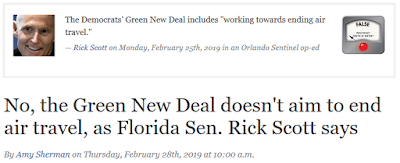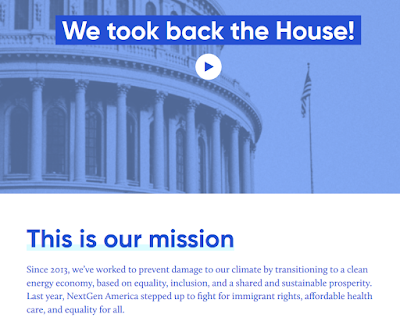One has to hand it to PolitiFact's Yacob Reyes. Earlier this year, Reyes turned a mostly unoccupied barrier island into the whole of Lee County. Now, Reyes turns bad-faith treaties affecting a limited number of American lands into support for the narrative of the United States (plus other modern American nations north and south) consisting of stolen land.
Behold:
PolitiFact's left-wing editorial masquerading as a fact check published on Nov. 3, 2022.
It takes DeSantis out of context, and instead of devoting an "In Context" article to DeSantis' statement, akin to the cover PolitiFact provided for President Obama when he informed business owners "You didn't build that," DeSantis received a "Pants on Fire" rating.
Strikingly, PolitiFact apparently draws a complete blank in trying to figure out why DeSantis would say the United States is not build on stolen land. That comes through in two ways. First, PolitiFact opines in print that it "wondered what DeSantis was referring to and whether he was right in his
assessment of whether the U.S. was built on 'stolen land.'" Second, PolitiFact offered absolutely nothing to represent DeSantis position other than tweets from DeSantis associate Christina Pushaw.
Pushaw tweeted an image promoted by Democratic Party candidate for Lieutenant Governor Karla Hernández-Mats saying "No one is illegal on stolen land." After reporting that Hernández-Mats offered no response to its questions about the image, PolitiFact drops that subject for the remainder of the article.
That's how PolitiFact treated the context.
With the context safely ignored, PolitiFact documents some of the admittedly raw deals the Native Americans got and declares DeSantis as wrong as can be:
It's well-documented that the U.S. repeatedly made treaties with Native Americans and then violated them using force and other means to accommodate non-Native settlement. Courts, including the U.S. Supreme Court, have time and again affirmed that as fact.
Government-endorsed actions to remove Native Americans from their ancestral lands included the 1830 passage of a federal law that led to war and resulted in thousands of Native deaths and more than 3,000 Seminoles being removed from Florida.
DeSantis' claim is wildly historically inaccurate. We rate it Pants on Fire!
How does that push back against a DeSantis objection to the immigration statement Hernández-Mats promoted? It doesn't. Instead, it blandly moves in step with liberal-progressive orthodoxy. PolitiFact can't be bothered to dig up articles that explain the objection to singling out Western nations as occupying stolen land.
The Spectator/Historian Jeff Fynn-Paul:
The narrative of the ‘stolen country’ or ‘Native American genocide’ does not stand up to scrutiny by any honest and clear-sighted historian. It is a dangerously myopic and one-sided interpretation of history. It has only gained currency because most practising historians and history teachers are either susceptible to groupthink, or else have been cowed into silence by fear of losing their jobs. Reduced to its puerile form of ‘statement of guilt’, this myth puts 100 per cent of the burden on Europeans who are held responsible for all historical evil, while the First Nations people are mere victims; martyrs even, whose saintlike innocence presumes that their civilisation and society were practically perfect in every way.
All Land is Stolen/Anthony Galli:
The only reason you can claim to “own” land is because of the implicit threat of military/police force against anyone who might try to take it from you. In the good ol’ prehistoric days, man would have to defend his own cave, but now our self-defense is largely done by our respective governments so that we can worry about other things like what’s on Netflix. In other words, a country is one big cave where the current occupant claims to own the cave by threatening force if you try to “steal” it.
In fact, what makes the United States of America so special is how well we treated the former inhabitants of the land we purchased… relative to how every other nation on Earth had treated conquered people up-till that point, which granted still isn’t saying much because the Trail of Tears definitely wasn’t a walk in the park.
Authors such as these help point out that viewing one's own nation as a thief will tend to erode society. And given that every nation qualifies as a thief in trivial "stolen land" terms, there is no real solution to the problem that doesn't involve destroying society. Further, in terms of permitting free immigration on the southern border, why should the descendants of land-stealing conquistadors have title to land stolen in an arguably more civilized way north of the Mexican border?
It doesn't make sense. But PolitiFact will not present those views.
PolitiFact has a narrative to nurture. And excluding competing narratives serves as one means toward that end.


















